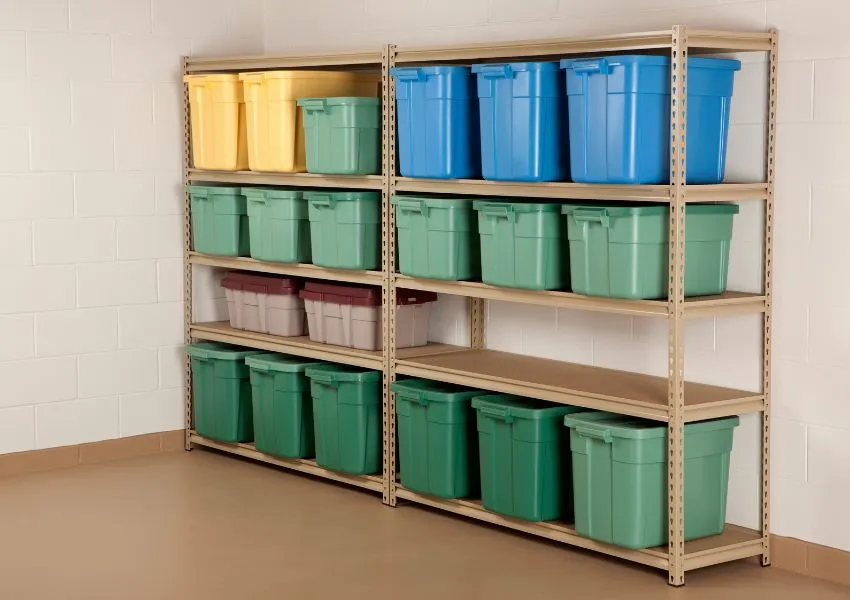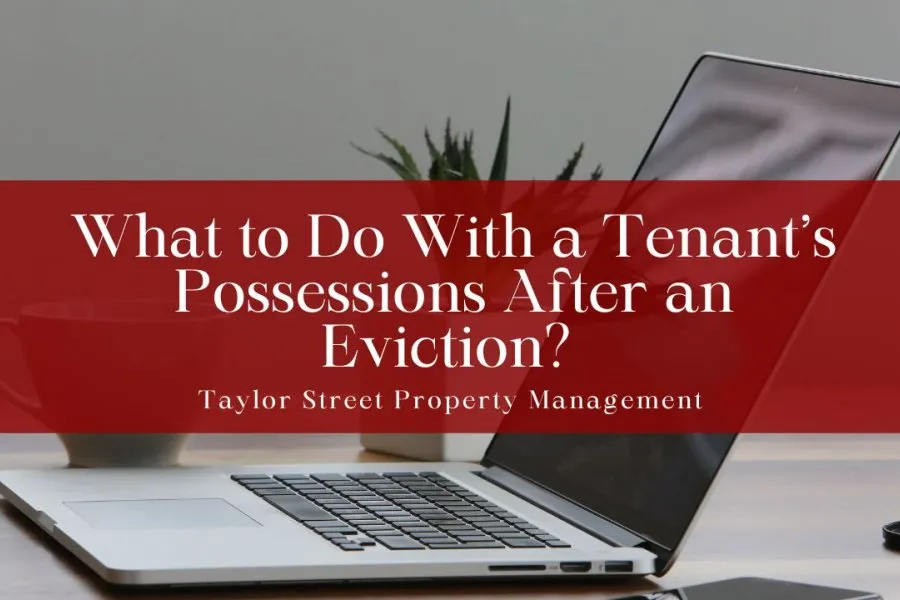If you have just finished the arduous process of evicting a tenant from your Arizona rental. But you may still end up facing another dilemma. Your former tenant may still have belongings left over in your unit.
When evicted tenants have left some of their personal items, landlords are still obliged to give them an opportunity to take it back. You might face some financial losses if you ignore this duty. So, it’s best to be aware of the right process to handle a tenant’s possessions once they’re evicted.
In this article, we at Taylor Street Property Management will provide recommendations on the proper handling of a tenant’s belongings after an eviction.
Understand the Eviction
First, you must fully understand the exact reason a renter was evicted. The condition of the eviction is important so you’ll know the extent of obligations you’re expected to fulfill when dealing with possessions left by a renter.
Note that each state has its own set of laws when it comes to the duty of the landlord to return the belongings left behind by an evicted tenant.
Provide an Opportunity to Retrieve
It’s logical that landlords use a holding period for their tenant’s abandoned possessions. This provides a great chance for the renters to get back their personal items. Additionally, your risk of being sued by the tenant over discarded property is reduced.

A simple process you can follow is keeping the possessions for around 7 to 10 days. This gives the evicted renter sufficient time to return and get their belongings back. Usually, they’re also responsible for the cost of getting the items back.
However if the items are valuable, it’s advisable to find a way to communicate and give them back to the renters and contact them. If there are fees charged for getting rid of the items, you can deduct them from the tenant’s security deposit.
Notify the Tenant
In Arizona, you must send a notice through certified mail to the tenant, and the request for a return receipt. It must be forwarded to the last known address or other alternate addresses of the renter. This notice must also provide information on the rental unit’s location and the holding time (10 days) to get it back.
Timing of Property Retrieval
Should a renter reach out to you by writing before you’re able to dispose of the possession left behind, a renter is given 5 days to reclaim their property. Reimbursement for the costs you absorbed for moving or storing the belongings should also be paid out before the retrieval of the items.

How to Store the Tenant’s Property
You can store abandoned items in different places:
- The rental unit that used to be occupied by the renter
- Extra available unit or storage space you have
- Outside the premises, in case you don’t have an available area for storage
In Arizona, you’re mandated to use “reasonable care” when handling a renter’s belongings. But there’s no damage liability unless it’s mishandled out of neglect or intentional abuse. It’s wise to be cautious when the tenant’s belongings are in your hands.
Reimbursement of Storage Costs
A renter may not show up after waiting for 10 days. In this case, you have the option of selling the possessions left behind to pay for what the renter owes you. This includes item organization, storage and any selling fees.
Should the renter come back for the items they left, you can still keep them until the tenant pays for the storage and moving costs. Note that this doesn’t cover items of clothing, tools, equipment, trade books, and financial or identification documents that relate to immigration status, employment status, public assistance, or medical care.
Handling Sales Proceeds
If the profit from selling the abandoned possession goes beyond the amount owed by the renter, Arizona law dictates that you must mail the extra proceeds to the tenant. The holding period for keeping the money on behalf of the renter must be at least 12 months.

Protecting Your Future
To avoid instances where you’re left with a former tenant’s possessions for a long period of time, you can incorporate an additional clause in the lease. You can include terms, such as:
- Fee for disposal of abandoned belongings
- Scheduling different arrangements in case a renter can’t do a single retrieval of the items
- Providing a prescribed period for keeping the possession
When you detail these terms in the lease, it will be far easier to remove the abandoned property in your unit whether the renters left your property through an eviction or not. This method also protects you from lawsuits. Outlining these conditions makes it easy to guide all parties to what action should be taken.
Bottom Line
Discarding an evicted tenant’s possessions requires proper consideration even under the circumstances. Rights shouldn’t be ignored. It’s also vital to be familiar with Arizona’s laws on storage holding periods and sending notices.
If you have any questions regarding this or any other aspect of property management, please don’t hesitate to contact the property management professionals at Taylor Street Property Management.


